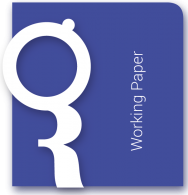
| Auteur(s) |
Alexandre Volle Patrick González |
| Type de publication | Working paper |
We analyze the performance of the championing and shaming information collecting strategies in a credence good market. Championing (Shaming) means certifying (uncovering) firms that sell high (low) quality products. A benevolent NGO investigates a firm to inform the consumer. It must decide between these strategies that have roughly the same chance of success. This is a choice of experiment problem in the context of a market hampered by asymmetric information. Both strategies performs differently because they provide a different information about players that behave differently. A champion welcomes certification while a fraudster fears shaming.
We show that their relative performances depend on the kind of equilibrium played. In a sophisticated market where information is revealed through price separation, the championing strategy fares better than the shaming strategy while the reverse is true when the information technology is poor and the consumers expect a pooling price.























